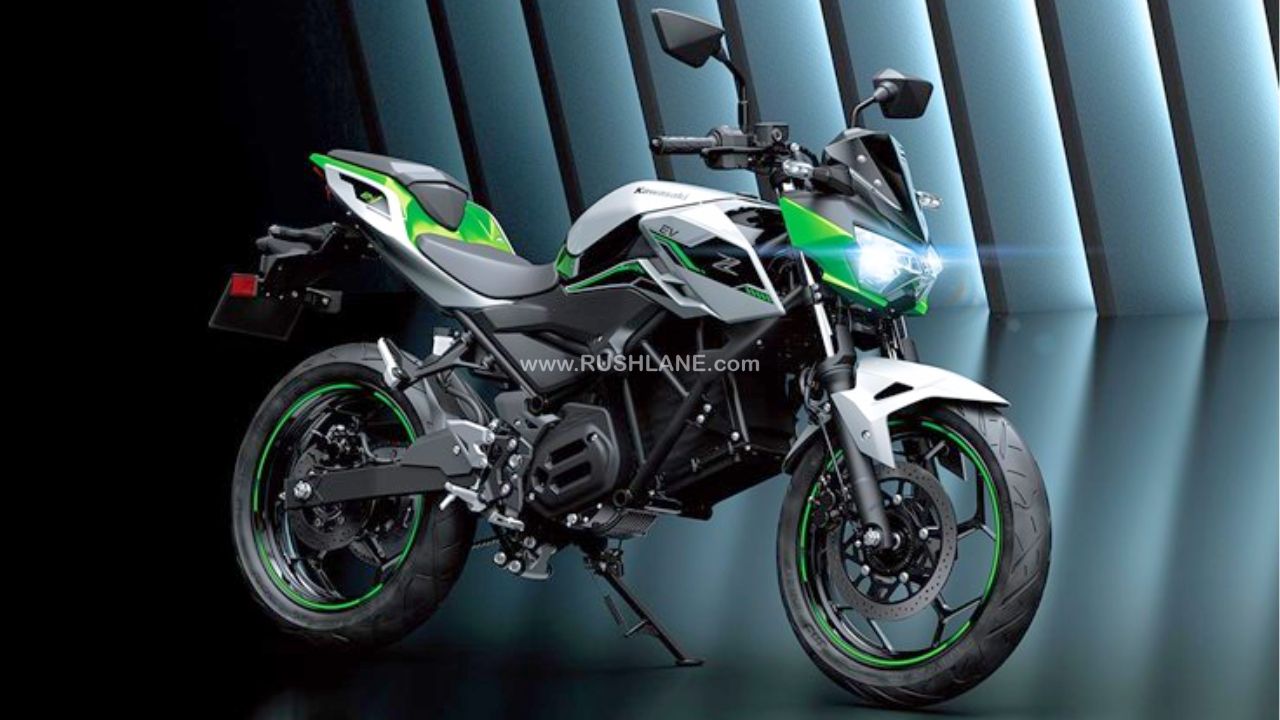
If launched via CBU route, both Kawasaki Ninja 7 Hybrid and Z E-1 will cater to a niche eco-conscious audience not afraid to shell big bucks
Team Green intends to navigate Indian market with an extended portfolio by spoiling customers with choices. In that regard, we witnessed the recent launches of Ninja 500 and its cruiser sibling, Eliminator (Kawasaki India doesn’t use 400 or 500 suffix with Eliminator). Based on the same platform, Kawasaki could launch Ninja 7 Hybrid along with its BEV, Z E-1.
Kawasaki Patents Ninja 7 Hybrid And Z E-1 In India
Iconic motorcycle manufacturer, Kawasaki, has patented two of its new and cutting-edge motorcycles in India. These motorcycles are Kawasaki’s new Ninja 7 Hybrid and company’s first all-electric production bike Z E-1.
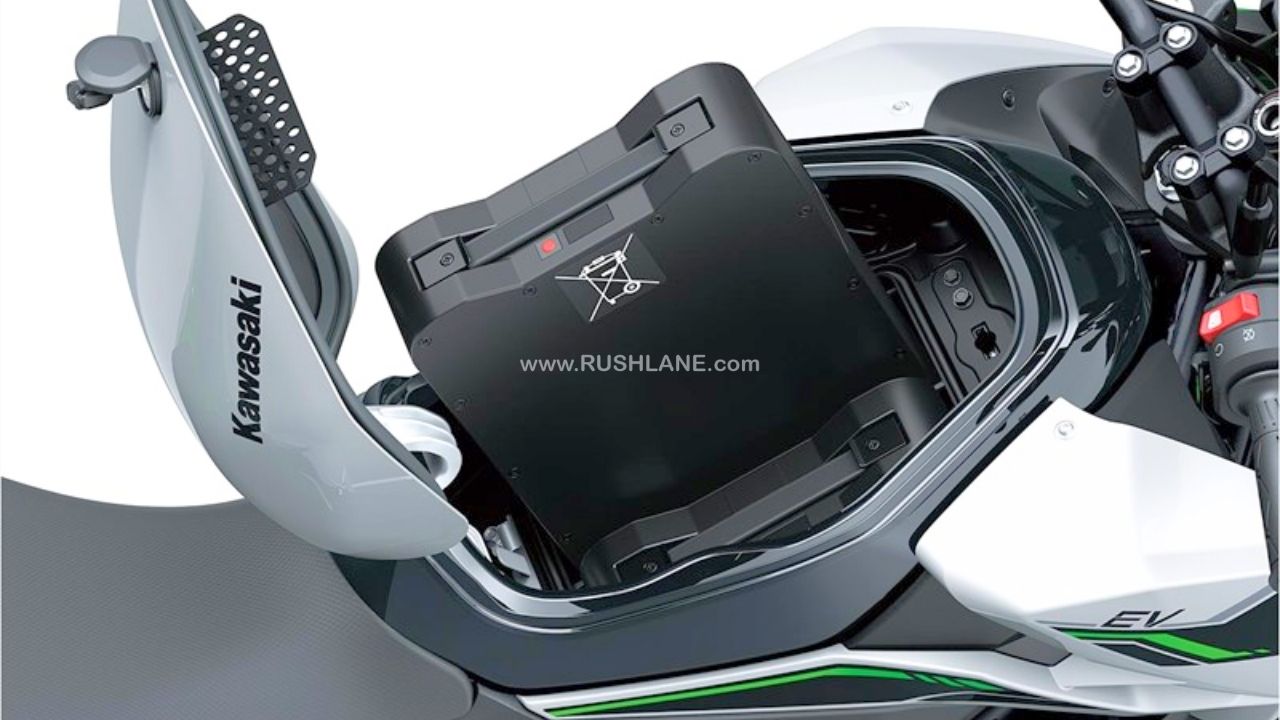
If Honda had patented some of its newest motorcycles in India, we would have thought it was just a standard patenting exercise. However, Kawasaki’s design patents look promising and there is a possibility of Team Green launching at least one of them in India. Most likely, we will get to see Ninja 7 Hybrid than Z E-1.
For starters, Kawasaki Ninja 7 Hybrid shares the same 451cc platform that Ninja 500 and Eliminator also use. This is a parallel twin cylinder DOHC 4V liquid-cooled engine that is capable of kicking out 44.7 bhp of peak power and 42.6 Nm of peak torque on its own. However, Ninja 7 Hybrid packs an additional electric motor.
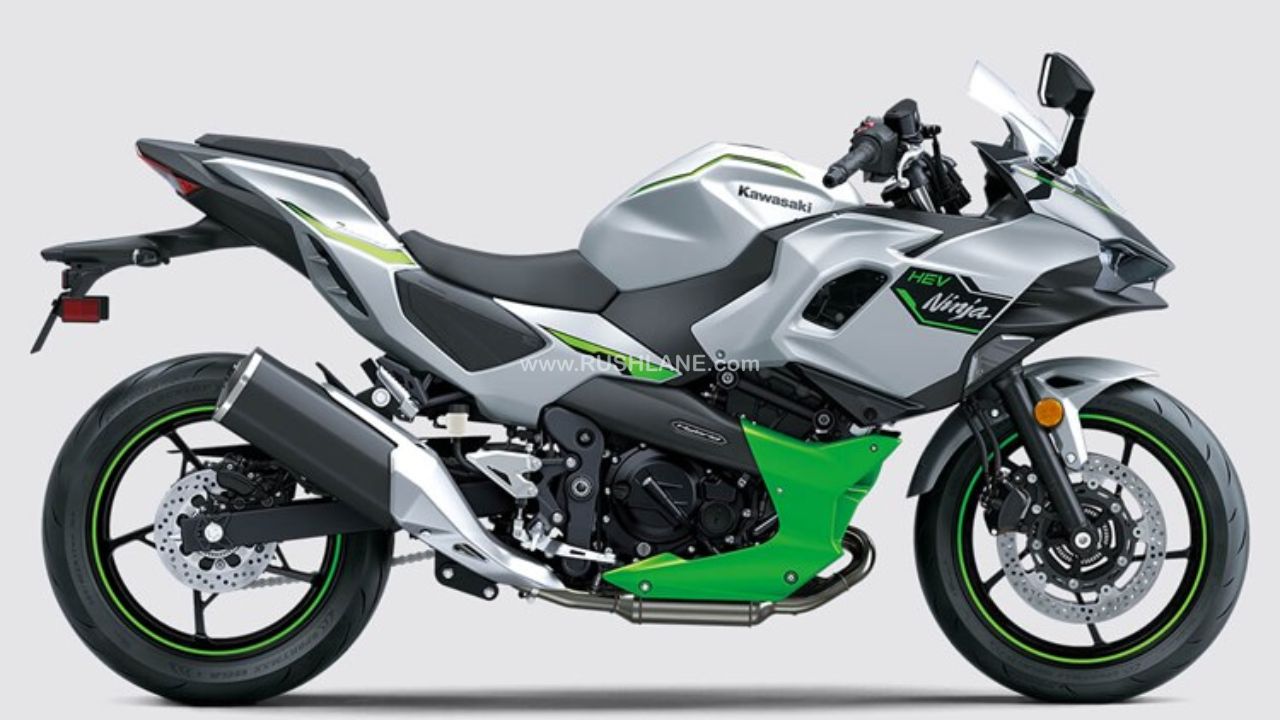
Added electric assistance results in a combined peak power of around 60 bhp with Kawasaki Ninja 7 Hybrid. Unlike Ninja 500 and Eliminator with a traditional 6-speed manual sequential gear selector, Ninja 7 Hybrid gets more sophisticated shift paddles in left side switchgear.
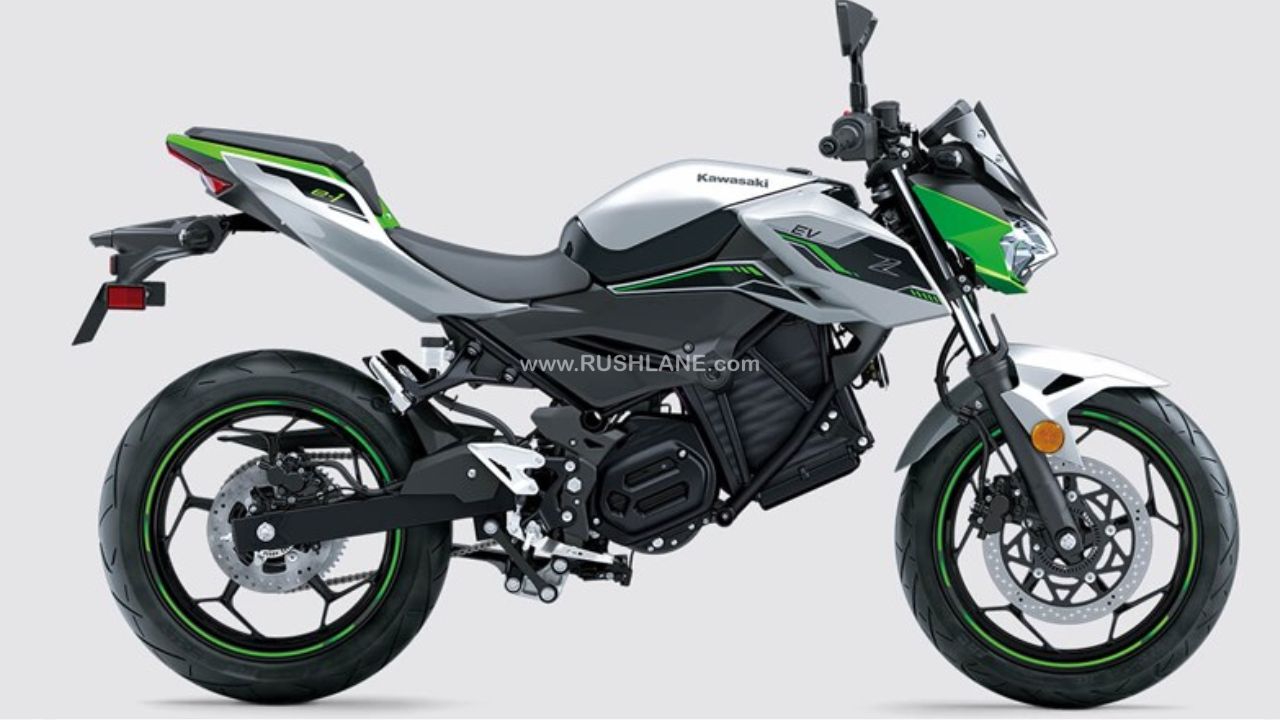
Will Z E-1 launch in India?
Where Ninja 500 and Eliminator weighed rather modest 171 kg and 176 kg respectively, Ninja 7 Hybrid weighs in at 227 kg. The added electrical powertrain components prove to be heavier than ICE versions. Kawasaki is currently selling Ninja 500 and Eliminator via CBU route and they’re priced at Rs. 5.25 lakh (ex-sh) and Rs. 5.62 lakh (ex-sh) respectively.
Globally, Kawasaki Ninja 7 Hybrid is priced higher than ZX-6R and if launched in India, we can expect a price close to Rs. 10 lakh mark. The other motorcycle Kawasaki has patented in India is Z E-1. This is a fully electric motorcycle with two removable 1.5 kWh batteries with a total capacity of 3 kWh.
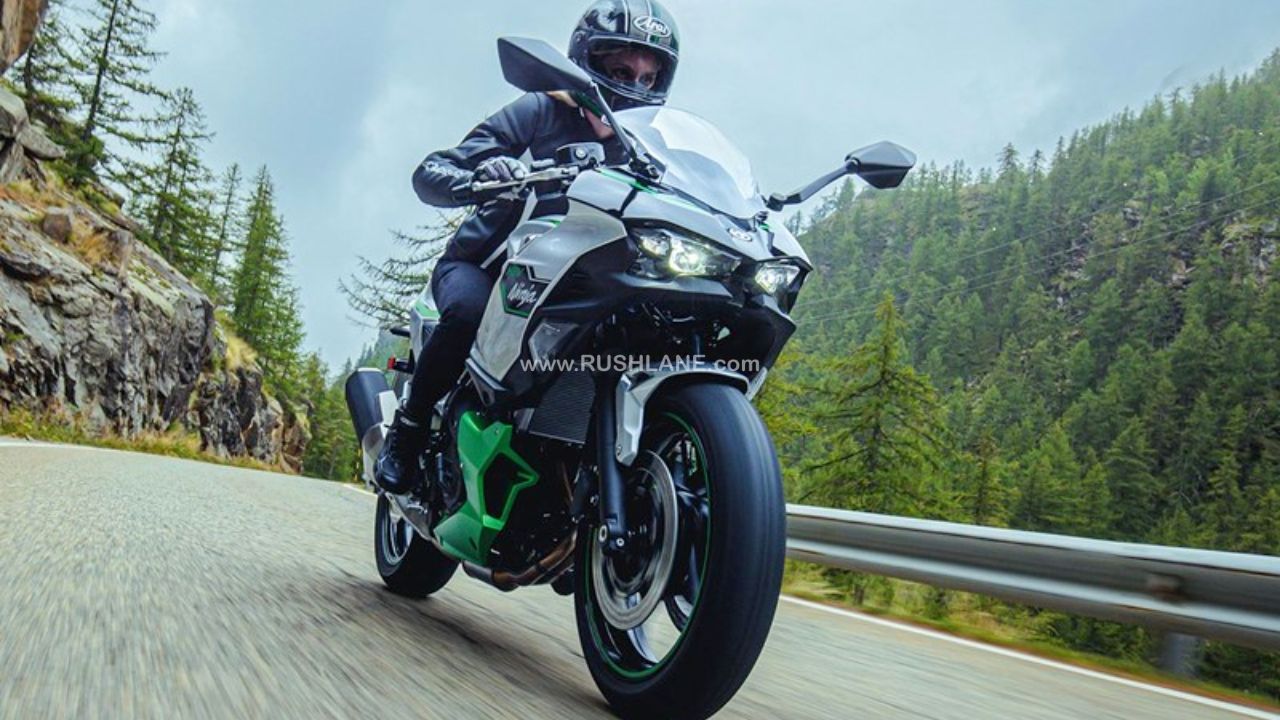
Peak power is 9 kW, which is less than Ola S1 Pro’s 11 kW. Range is limited on Z E-1 too, at just 72 km and top speed is around 80 km/h. Considering India is a price-sensitive market, Kawasaki is less likely to launch Z E-1 in India as global pricing positions it above Ninja 650. Launch could happen by the end of this year.






